March 21st is World Down Syndrome Day…a day when we educate society on what Down Syndrome (DS) really is and not what they assume it to be.
So, what is Down Syndrome? It took me awhile to decide how to approach this, as there are many websites out there that give you a great clinical definition of what Down Syndrome is…our friends at Jamaica Down Syndrome Foundation, for example, have a pretty decent description on their website. I, however, did not want to add to that crowded pool of medical descriptions…after all, I am no doctor…so I decided to tell you what DS is and has been to me and my family for the last 20yrs.
Growing Up With a Sibling Who Has Down Syndrome
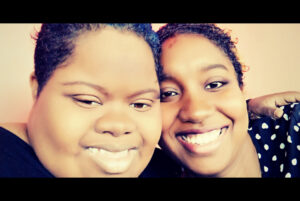 Firstly, my name is Alicia and my baby sister, Shadeeza…well she’s not a baby anymore and she makes that quite clear…happens to have Down Syndrome. I can remember when Shadeeza was born, she was so tiny that I was afraid to hold her. I was just a kid myself and of course I didn’t want to hurt my baby sister and she just looked so fragile to me. It took me awhile to build up the confidence to hold her, but I got there.
Firstly, my name is Alicia and my baby sister, Shadeeza…well she’s not a baby anymore and she makes that quite clear…happens to have Down Syndrome. I can remember when Shadeeza was born, she was so tiny that I was afraid to hold her. I was just a kid myself and of course I didn’t want to hurt my baby sister and she just looked so fragile to me. It took me awhile to build up the confidence to hold her, but I got there.
When my mom told me that my sister had DS, I really did not know what that meant. The one thing I can remember is my mom saying that, according to the doctors, Shadeeza would not live past her 25th birthday. That to me was shocking and scary, as you can imagine for any prepubescent child. I mean, what the heck kind of a diagnosis is that? How can you tell me my little sister is not going to live a full life and possibly even die before I do…What?!
Yes, that scared the crap out of me and at that age I believed whatever doctors said. I later found out during my university years that it’s no accident why they call it a doctor’s “practice”. That was a joke, guys. I have friends who are doctors so I have nothing against them. I just realized that they can only try and make the best call based on the information they have at the time…and at that time, they were not aware that persons with DS were living longer. Hey, if they don’t know, they just don’t know.
I learnt from that experience that it is our responsibility as parents/family members to get educated about DS and help to educate others…after all, not everyone is blessed to know someone who has Down Syndrome and the truth is, if it weren’t for my sister, I probably would be just as ignorant.
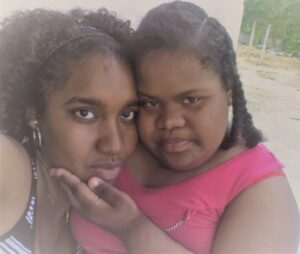 So, as time went by, I would notice that Shadeeza took a while to do the “regular” baby stuff that people expected, like walking, talking, etc. Her development was delayed but she did reach the above-mentioned milestones. This took a toll on me sometimes, especially when I made the grave mistake of comparing her to other kids her age who were perceived as “normal”.
So, as time went by, I would notice that Shadeeza took a while to do the “regular” baby stuff that people expected, like walking, talking, etc. Her development was delayed but she did reach the above-mentioned milestones. This took a toll on me sometimes, especially when I made the grave mistake of comparing her to other kids her age who were perceived as “normal”.
I would feel bad for her that she was not “up to their speed”, but as I got older I learnt that my sister sets her own speed honey…seriously, this girl marches to the beat of her own personalized drum and frankly does not care…which I find absolutely amazing. How can you not care what people think, right? Wrong! I learnt from my baby sister that I should only compete with the person I was yesterday and aim to improve each time. If I were to follow every opinion about myself that was out there then I probably would be curled up in a corner somewhere, afraid to go outside because of all the mean people.
The lesson here: Be yourself. We all have our limitations/disabilities or whatever you may call it. The aim is to make the best of whatever hand that you are dealt in this life. The goal is continuous improvement honey.
The Discrimination, Bullying & Name-Calling
With that being said, the name-calling that followed, the discrimination and the bullying were a little easier to deal with and to this day, is still something we have to deal with. I remember when my mom insisted that Shadeeza attend a regular primary school, as the special education school in the town that we were living was packed and only accepting persons with severe cases of whatever disability they had.
She was told by one of her coworkers at the school (yes, a fellow teacher) that her child did not belong there and she should move her to a special school…my mom of course did not move her. I would then hear stories of persons calling my sister “handicapped” and “retarded” (yes, that disgusting “R” word). As a family member/friend, this word can get you into a lot of trouble if you don’t learn to control your anger from early on…you’ll punch a “mofo” out if you’re not careful…and frankly they’re not worth it. If you are able to educate that person instead and explain why they should stop using the “R” word, then that would be time better spent.
Limited Education Opportunities
After Shadeeza finished primary school, my parents did not know what to do next. We were from a rural community and not a lot of programmes or schools were available for persons with DS. By this time, I had finished university and was now living and working in a metropolitan area.
The thought of my sister just sitting at home, drove me crazy. I could not accept that this was the end of the road for her in terms of education or that there was no hope for her in terms of a job/career. So, I spoke to a few persons, made a few calls and thankfully she got into a special education school in the city. My older sister and I then decided we had to move in together in order to have Shadeeza live with us in the city.
The fact that my mom insisted on her attending the “regular” primary school really helped Shadeeza to develop her social skills and the special education school that she attended during her teenage years, plus the fact that she lived with her sisters, really helped her to mature. But it was when my older sister and her husband had their first child and Shadeeza became an aunt that “Miss Maturity” really showed up.
She really took on the role of helping to care for her nephew and that helped her to learn a great deal of responsibility. This didn’t stop her from being a regular teenager though…you know the ones you have to tell to pick up after themselves and constantly remind them of things a thousand times, plus having to deal with the “teenager” attitude and of course, the whole “I want a boyfriend” thing. It’s a lot to deal with but you deal, just like with any other child.
Employment Opportunities…the Struggle
From secondary school, Shadeeza went on to do a one-year training programme in hotel housekeeping with the promise of job placement, which we are yet to see. So after realizing that the one year training wasn’t about to bear any fruit any time soon, it was on to the next one.
Shadeeza started attending weekly art (painting, pottery, jewellery making) classes, which she enjoyed and was quite good at…so of course, my older sister and I had to figure out how we could make this an income stream for Shadeeza.
We are happy to say that today Shadeeza is a blossoming artist/entrepreneur. You can check her out on Instagram at shadeezabuckley and you can also purchase prints of her artwork, on canvas or as a framed piece, by visiting her website: shadeezabuckley.com.
As a family, we just have to keep trying and take it one day at a time. God knows it is not easy, as our society is not used to persons with DS constantly being in the public eye and employees with DS, unfortunately, are a myth. So, we constantly feel as if we have to be breaking down barriers, which honestly can make one weary after a while, but we can’t stop.
As much of an uphill battle as it may be, we just cannot stop. Why? Because Shadeeza constantly reminds me that she needs her own money, as she feels that by doing this, our older sister and myself cannot tell her how to spend it. Ha! She constantly says she wants to move out and live on her own…she wants her own apartment…and of course she wants a boyfriend. The woman wants her independence…something we all want.
What Really is Down Syndrome?
So, what is Down Syndrome? DS is having the same wants and needs as anyone else but the road to attaining them will be different from that of others due to societal misjudgments of who you are and what your abilities are, which does not stop you, but instead encourages you to pave the way and help others like you to follow.
Persons with DS are just like everyone else, they just learn things slower than the average person, but they DO learn and they need love and understanding just like the rest of us. So today, be a little kinder and more understanding to all who you meet. HAPPY WORLD DOWN SYNDROME DAY Everyone!
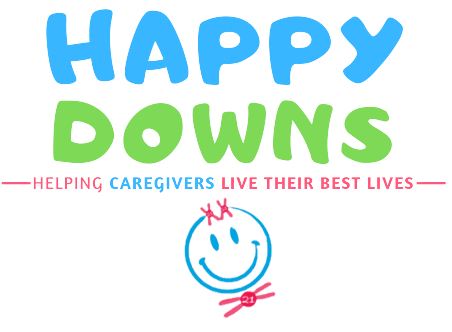

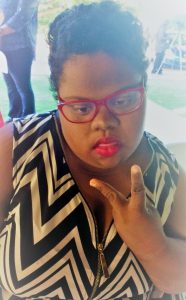

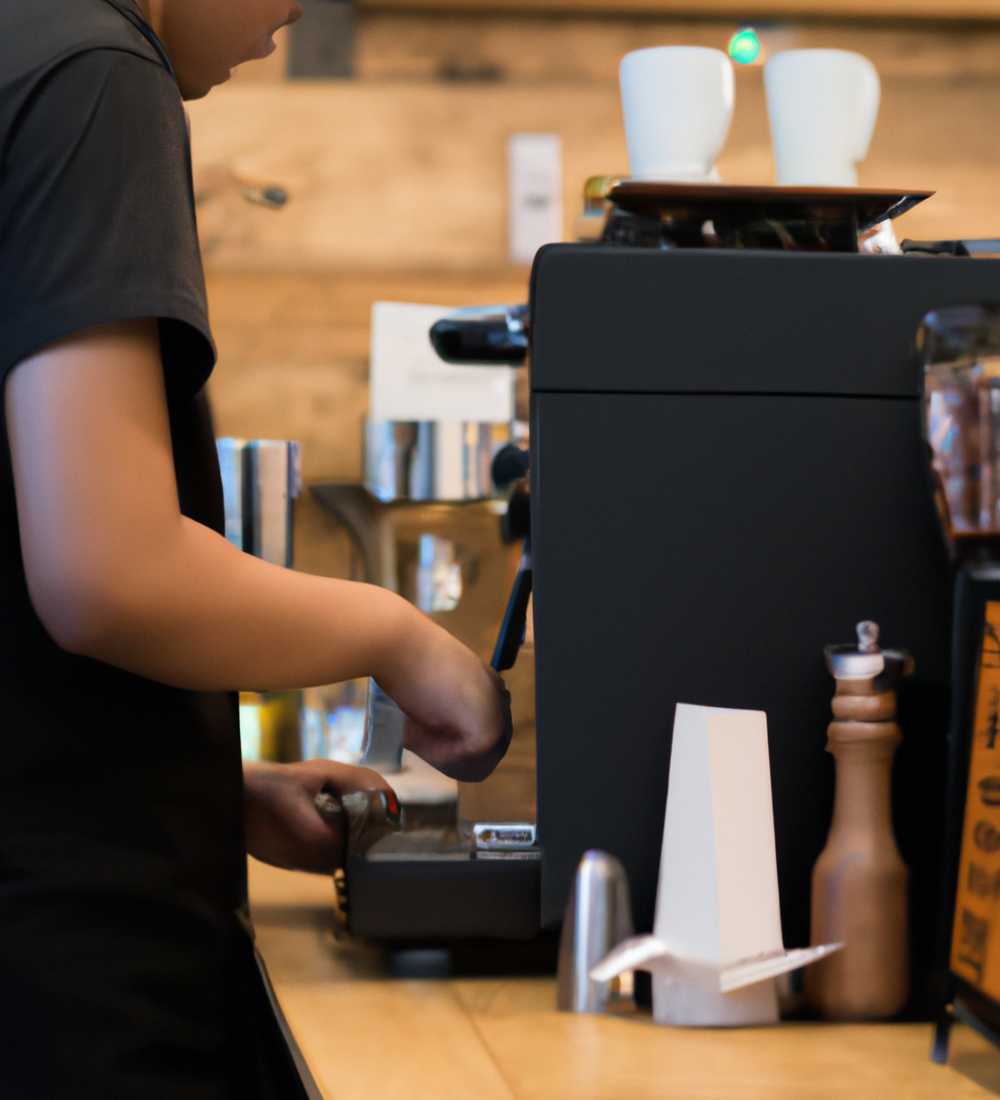
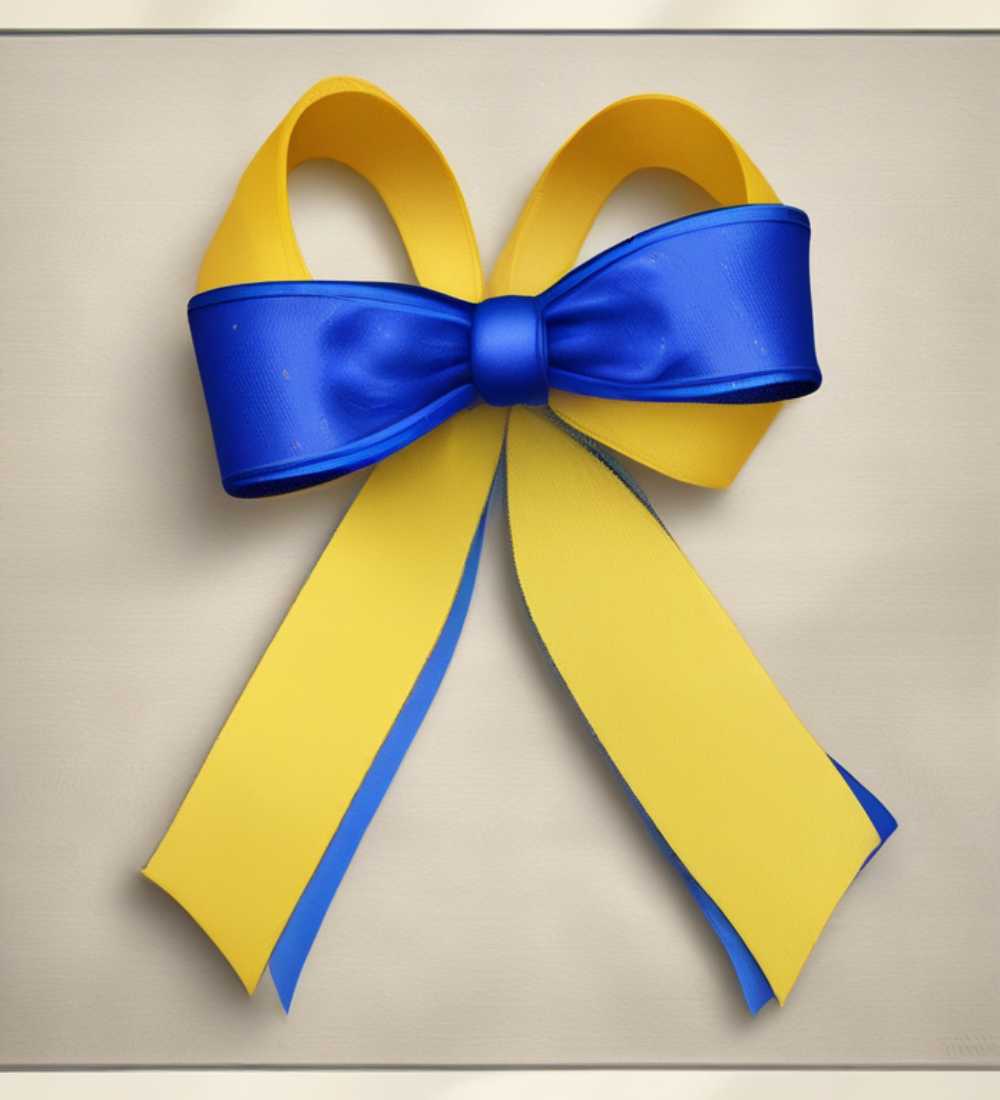


I just LOVE this article. Good work Alicia.
Pat
Thank you Pat!